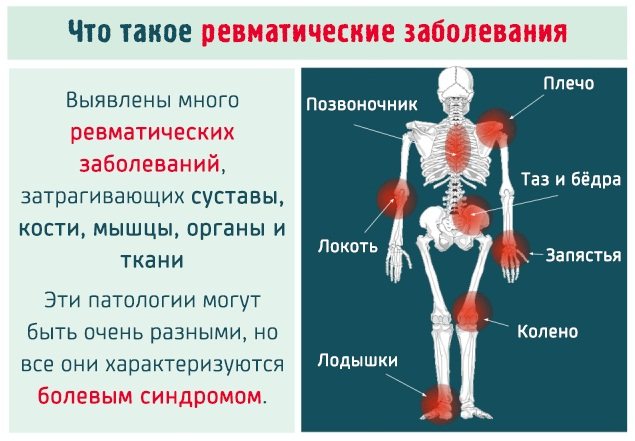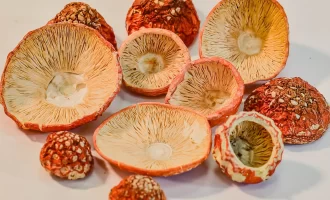You complain of severe pain and joint spasm? Change your daily diet, it will help you to relieve the pain of rheumatism and restore your well-being. This is because the symptoms of rheumatoid arthritis get worse., as a result of improper diet.
Diet for rheumatism joints
Diet for rheumatism joints will help you reduce pain and malaise. Rheumatoid arthritis, until recently called rheumatism, it is a chronic inflammatory process, which is responsible for acute pain, stiffness and limitation of joint mobility. Among the causes of rheumatism are: genetic and hormonal factors, smoking and prolonged stress. But not only.
Some rheumatic diseases can also have an allergic background.. It turns out that certain nutrients can also cause joint problems. Therefore, some rheumatic diseases are treated not only pharmacologically, but also diet.
Those products must be excluded from the menu, which aggravate symptoms. This way you can ease the discomfort., gradually reduce the dose of the drugs taken or completely abandon them. But such a decision must be made by a doctor..
Fish based diet
For rheumatoid arthritis, a vegetarian diet with fatty sea fish is the best.. Its fat and meat contain a lot of valuable calcium., iodine and highly digestible protein. but, first of all, it is a rich source of omega-3 polyunsaturated fatty acids, that protect the heart, improve brain function and improve joint mobility. Should find their place on the menu: mackerel, salmon, herring, sardines, tuna. Eat them regularly, best for 150-200 g per day.
Anti-inflammatory omega-3 fatty acids and vitamin E can be found in flax seeds and oil, olive oil, walnuts.
Vegetables and fruits
For rheumatism, it is advisable to eat cooked or raw vegetables: salad, cabbage, cucumbers, leeks, broccoli, carrot, beets, celery, parsley and legumes. Also eat blueberries, cranberry, black grapes, blueberry, black currants, red apples. Drink fruit and vegetable juices, as well as herbal drinks.
Vegetables and fruits provide a lot of vitamin C (it participates in the production of collagen and is responsible for the condition of joints and tendons), as well as bioflavonoids. It prevents the spread of substances, which initiate and maintain inflammation.
Beneficial for joints, garlic and onion. They contain valuable sulfur compounds, which decrease hormone production, supporting inflammation.
Spice
The allies of the patient with rheumatoid arthritis are: turmeric, ginger, anise and cloves. Provide anti-inflammatory effects, reduce pain, joint stiffness and swelling.
Such properties have, eg, ginger tea: peel and rub 1 see ginger root, pour a glass of boiling water, cover and set aside for 10 minutes. After it has cooled down to 60ºC, add a teaspoon of honey. Drink it 3-4 once a day before meals. Fresh ginger can be substituted with a teaspoon of chopped ginger.
Collagen
You also need to replenish your menu with products containing collagen., which reduces enzyme activity, acts anti-inflammatory and facilitates the regeneration of the affected bone and joints. A lot of collagen is found in fruit jelly, or fish jelly. You can also take an optional shark cartilage powder.
What makes rheumatoid arthritis symptoms worse?
Among doctors, dealing with rheumatic diseases there is no single opinion, what foods can harm a person, and which ones are not. So how to create your own menu?
Better check, what in your case is bad for the joints. So by typing, you can determine which foods harm you., and which ones are not. To do this, you need to eat the same foods for a week., and if the pain does not diminish then change the menu. When you determine which products are right for you and which are not, you will be able to independently compose your menu.
What should not be done under any circumstances?
- Refuse food containing: eggs, meat (especially beef) and sausages, because they contain a lot of preservatives, which aggravate the symptoms of rheumatism.
Be wary of fatty dairy products (milk, cream, cheese). These foods contain arachidonic acid, which facilitates the production of prostaglandins – inflammatory hormones. - Be careful about butter, sunflower oil and margarine – are many fatty acids, which block the beneficial effects of fish oil and increase inflammation.
- Avoid fried foods, Sahara, coffee, alcohol. Limit salt intake – use tarragon instead, which gives dishes a slightly salty taste. Wheat is also blacklisted, rice, oat, corn and some vegetables, eg: potatoes, tomatoes, eggplant and pepper. After consuming these products, some patients experience pain and stiffness of the joints..
Important! British scientists have proven, what colored vegetables and fruits (eg, carrot, pumpkin, broccoli) reduce the risk of inflammatory diseases. They contain a lot of carotenoids: beta-cryptoxanthin and zeaxanthin. These substances are beneficial for the body, as they remove toxins from it, which contribute to the onset of inflammatory processes. To protect your joints, it is worth drinking at least a glass of freshly squeezed carrot juice daily with the addition of a few drops of olive or linseed oil.
Read on: An example of a diet menu for rheumatism of the joints.





